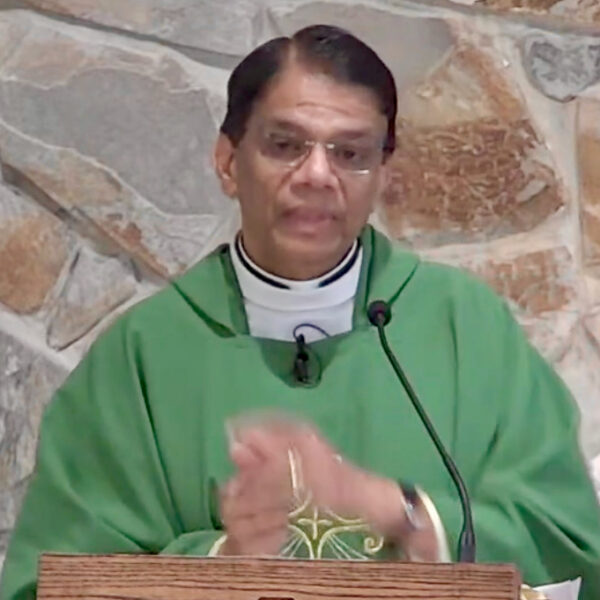Ascension of Our Lord
Today in the Gospel we read that the disciples of Jesus were hiding. They were hiding in fear behind closed and locked doors. They were shutting out the rest of the world, which was hostile, persecuting, and terrifying. They felt better huddled together, in isolation, planning what to do next and where to go.
And then, surprise! Into their isolation, Jesus comes! Through closed doors he walks. Their reaction must have been one of surprise, then joy, as they realize who it is.
Jesus tells them to get out of their isolation and fear, and go and announce the Good News. You are the bearers of the Gospel, the announcers of salvation and forgiveness. You must go; you have a mission.
But they are scared and unsure, so Jesus promises them the Holy Spirit because the Spirit will enable them to do what they cannot do themselves. The same Holy Spirit who overshadowed a young girl and made her the Mother of God would descend upon the Apostles and transform them as heroes for Christ.
Ascension and Pentecost tell us that God is still present, still speaks, still sends out disciples to make a difference, and still calls—calls you and me. What Jesus said at Ascension still remains valid and indispensable: You be My witnesses. Jesus’s ascension is to make Jesus more available to us. This means that at any time, in any place, in every situation, Jesus sees us, knows us, and can hear us.
So, therefore, we shall be true witnesses for him on earth. Put our trust in that Lord who is always with us to guide and help us.
Love and Prayers,
Fr. Charley
